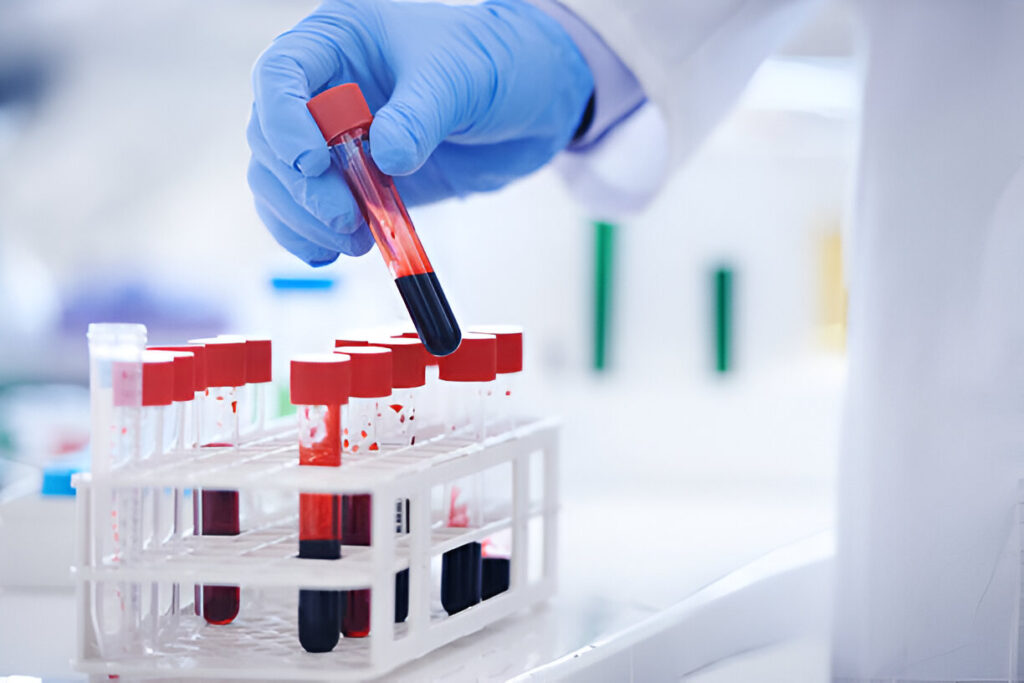Blood tests play a critical role in diagnosing and monitoring health conditions. They provide invaluable insight into how your body functions, from detecting diseases early to assessing overall wellness. With the advancement of medical technology, blood tests have become more accessible, enabling individuals to make informed decisions about their health.
In this comprehensive guide, we will explore the importance of blood tests, the various types, what they reveal about your health, and how you can use this knowledge to stay proactive about your well-being.
What Are Blood Tests?
Blood tests are diagnostic tools used to evaluate your body’s functions. By examining a sample of your blood, healthcare professionals can detect various substances and cells in your bloodstream. These tests measure the levels of certain chemicals, enzymes, proteins, and more, helping physicians diagnose illnesses, monitor treatments, or check for imbalances in essential body functions.
Why Are Blood Tests Important?
The significance of blood tests cannot be overstated. These tests provide essential data that can identify the early onset of diseases or reveal risks you may not be aware of. Regular blood testing can help you:
- Monitor overall health: Regular check-ups allow you to track changes in your body.
- Detect potential health issues early: Blood tests can catch early signs of conditions like diabetes, high cholesterol, or liver disease.
- Assess the efficacy of treatments: If you’re undergoing treatment for a condition, blood tests can gauge how well the treatment is working.
- Maintain balanced nutrient levels: Blood tests help ensure you’re getting adequate vitamins and minerals.
Understanding the results of a blood test allows you to take proactive measures, whether through lifestyle changes or medical treatment, ensuring long-term health and well-being.
Common Types of Blood Tests and Their Purposes
There are several blood tests available, each designed to measure different elements in your body. Below are the most common ones and what they reveal:
1. Complete Blood Count (CBC)
The Complete Blood Count (CBC) is one of the most commonly performed blood tests. It provides a snapshot of your overall health by measuring different components of your blood, including:
- Red blood cells (RBCs): These carry oxygen from your lungs to the rest of your body. A low RBC count may indicate anemia, while a high count could signal a heart or kidney condition.
- White blood cells (WBCs): These are part of your immune system. An abnormal WBC count can indicate infection or inflammation.
- Platelets: These help with blood clotting. A low platelet count can cause bleeding problems, while a high count may increase the risk of blood clots.
2. Basic Metabolic Panel (BMP)
A Basic Metabolic Panel (BMP) measures levels of substances like glucose, calcium, and electrolytes (sodium, potassium, chloride, and bicarbonate) in your blood. These tests provide insight into your body’s metabolism and overall organ function, particularly your kidneys. Here’s what a BMP can reveal:
- Glucose levels: High glucose levels may indicate diabetes or pre-diabetes.
- Calcium levels: Abnormal levels could signify bone, kidney, or thyroid issues.
- Kidney function: Elevated levels of creatinine and blood urea nitrogen (BUN) can indicate kidney dysfunction.
3. Lipid Panel
A lipid panel tests your cholesterol levels, which are crucial in assessing heart health. This panel typically includes:
- Total cholesterol
- Low-density lipoprotein (LDL) cholesterol (bad cholesterol)
- High-density lipoprotein (HDL) cholesterol (good cholesterol)
- Triglycerides
Elevated LDL cholesterol and triglycerides can increase the risk of heart disease and stroke, while higher levels of HDL cholesterol are beneficial for heart health.
4. Thyroid Function Tests
Your thyroid gland regulates your metabolism, and blood tests like the Thyroid Stimulating Hormone (TSH) test can determine how well it is functioning. Abnormal TSH levels can indicate hypothyroidism (underactive thyroid) or hyperthyroidism (overactive thyroid). These conditions affect your energy levels, weight, and overall well-being.
5. Liver Function Tests
Liver function tests measure enzymes, proteins, and other substances produced by the liver. High or low levels may indicate liver damage, infection, or disease. Common liver function tests include:
- Alanine transaminase (ALT)
- Aspartate transaminase (AST)
- Alkaline phosphatase (ALP)
Elevated liver enzymes could indicate liver inflammation or damage, often linked to alcohol consumption, fatty liver disease, or viral hepatitis.
6. C-Reactive Protein (CRP) Test
A C-reactive protein test measures the amount of CRP in your blood. CRP is a substance produced by the liver in response to inflammation. High levels of CRP can indicate an infection, autoimmune disorder, or chronic inflammatory disease like arthritis.
How to Prepare for Blood Tests
Most blood tests do not require extensive preparation, but certain tests may require fasting or the avoidance of specific medications. Here are a few key tips to prepare for your blood test:
- Fasting: For tests like the BMP or lipid panel, you may need to fast for 8-12 hours before the test. Always consult with your healthcare provider about specific instructions.
- Medication: Inform your doctor of any medications you’re taking, as some can interfere with test results.
- Hydration: Drinking water before the test can help make your veins easier to locate for blood collection.
Proper preparation ensures accurate results and reduces the chances of needing to retake the test.
Understanding Your Blood Test Results
Once your blood test results are in, your doctor will explain what the values mean. Most lab reports include reference ranges to compare your results. Here’s a breakdown of what to look for:
- Normal range: A result within the normal range suggests that your body is functioning as expected.
- High or low results: Results outside the normal range may indicate an underlying health issue, warranting further investigation or treatment.
It’s important to remember that a result outside the normal range doesn’t always mean you have a disease. Your doctor will interpret the results in the context of your medical history and overall health.
How Often Should You Get Blood Tests?
The frequency of blood tests depends on your age, health status, and risk factors. For healthy individuals, an annual blood test as part of a routine physical exam is typically recommended. However, more frequent tests may be needed if you:
- Have a family history of certain diseases
- Are managing chronic conditions (e.g., diabetes, high cholesterol)
- Are on medications that require monitoring of specific blood markers
The Future of Blood Testing
Innovations in blood testing technology are making it easier and faster to get results. Advances in molecular testing, genetic profiling, and at-home testing kits are revolutionizing how we approach healthcare. These developments aim to provide even more personalized insights into your health, empowering you to make data-driven decisions to maintain optimal well-being.
References
For more information on how to interpret blood test results and what they mean for your health, consider visiting the American Heart Association’s page on blood tests for cholesterol insights or the National Institutes of Health’s (NIH) guide on lab tests for a comprehensive understanding of various blood tests.
In conclusion, blood tests are a vital component of preventive healthcare. They provide a wealth of information that can help detect diseases early, monitor chronic conditions, and assess overall health. Whether you’re tracking your cholesterol, managing diabetes, or ensuring your liver is functioning properly, understanding the results of your blood tests can lead to a healthier, more informed life.
Don’t wait until you’re sick—regular blood tests can help you stay ahead of potential health problems and take control of your well-being. Come to us and check your blood test
Key Takeaways:
- Blood tests are crucial for early detection and management of diseases.
- Common tests include CBC, BMP, lipid panel, and liver function tests.
- Preparing correctly for a blood test ensures more accurate results.
- Understanding your test results and acting on them is essential for maintaining good health.
Stay proactive, and let blood tests guide you on your journey to better health.




